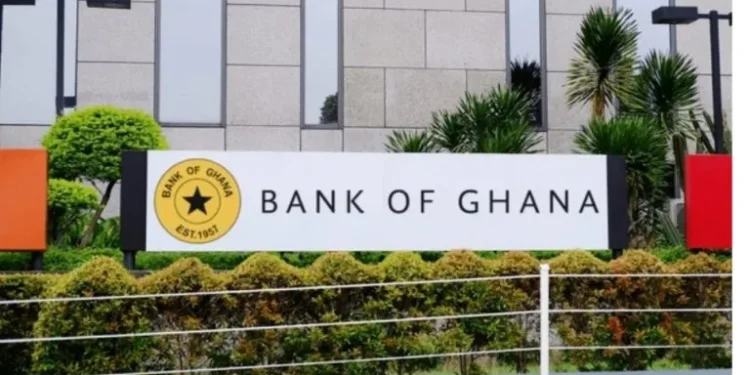Bank of Ghana to Overhaul Reference Rate in Bid to Cut Lending Rates Below 10%
The Bank of Ghana (BoG) has announced plans to overhaul the Ghana Reference Rate (GRR) as part of a broader policy framework aimed at bringing lending rates below 10% within the next four years.
Governor of the Central Bank, Dr Johnson Pandit Asiama, made the disclosure at the launch of the Ghanaian Banker Magazine and the unveiling of new initiatives by the Chartered Institute of Bankers (CIB) Ghana on Thursday, June 19.
According to Dr Asiama, addressing structural inefficiencies within the credit market remains critical to unlocking affordable credit for businesses and households. He stressed that the current high cost of credit continues to stifle private sector growth and economic expansion.
“There were skeptics when I recently declared my vision of seeing lending rates down below 10 percent before the end of my four-year tenure. I’m happy to declare that there’s a committee working to reform the Ghana Reference Rate, which will clearly bring the benchmark for lending significantly down,” he stated.
The GRR, introduced in 2018, serves as the base rate for all banks and has been a key component in determining market lending rates. However, its responsiveness to macroeconomic shifts and its effectiveness in driving competitive credit pricing have come under scrutiny in recent years.
Dr Asiama explained that the central bank’s planned reforms would also include strengthened regulatory oversight and the promotion of sound market discipline to complement the revised benchmark.
“The reform agenda is designed to create space for credit growth without pricing businesses out of access to finance,” he noted.
The BoG believes that a recalibrated reference rate—anchored in more transparent and flexible market dynamics—will help foster a more inclusive and resilient financial ecosystem capable of supporting Ghana’s long-term development goals.
The move aligns with the Central Bank’s broader monetary and financial sector strategy, which seeks to ease access to credit, particularly for SMEs, while anchoring inflation expectations and stabilising the exchange rate.









This measure will be a big relief to entrepreneurs and all business-minded people.